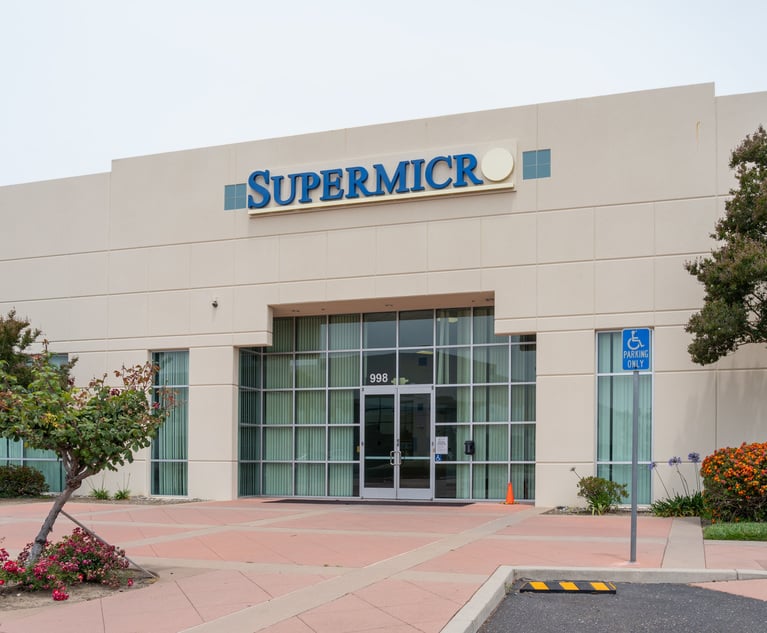Tech's Efforts to Diminish Landmark Privacy Law Fizzle, for Now
The demise of the bills over the course of a 12-hour committee hearing Tuesday marked the first significant defeat for tech companies.
July 10, 2019 at 10:13 AM
4 minute read
 Sacramento State Capitol building on Capitol Way. (Photo: Jason Doiy/ ALM)
Sacramento State Capitol building on Capitol Way. (Photo: Jason Doiy/ ALM)
Corporate-backed efforts to limit the reach of California's Consumer Privacy Act through legislative amendments ran into a political buzzsaw Tuesday as a state Senate committee killed one key bill and handcuffed another that organized labor had opposed.
The author of a third bill that would have allowed certain sales of personal data to government agencies shelved the measure without a vote after the Senate Judiciary Committee issued a critical analysis of the legislation.
The demise of the bills over the course of a 12-hour committee hearing Tuesday marked the first significant defeat for tech companies, business groups and their lobbies, which have been trying to redefine aspects of the landmark data privacy law since its hasty passage last year. The law goes into effect in 2020.
The bills cruised through the state Assembly this spring only to hit a roadblock: Sen. Hannah-Beth Jackson, D-Santa Barbara. The chair of the Senate Judiciary Committee, Jackson has sought to add stronger enforcement measures to the privacy act, trying unsuccessfully earlier this year to give consumers, and not just the attorney general, the right to sue over violations. On Tuesday she called the law “a weak cup of tea” that would have been “turned into water” if some of the amending bills had passed.
Tuesday's marathon committee hearing had a special urgency with Wednesday's deadline for moving bills out of legislative policy committees looming. The most contentious bill debated in the committee's evening session was AB 873, a Chamber of Commerce-backed measure that would have broadened the definition of de-identified information—information that does not fall under the restrictions of the Consumer Privacy Act.
Bill author Jacqui Irwin, D-Thousand Oaks, called the law's current definition of de-identified data “unworkable” and warned her colleagues that if the state doesn't “get it right” with fixes to the privacy law “there will be federal pre-emption.”
Jackson, however, called Irwin's bill “dangerous” and asked the author to take a series of amendments. Irwin refused, leading the committee to reject the measure on a 3-3 vote.
The committee also voted to amend a bill that would have exempted employers from some data-collecting provisions in the privacy law. AB 25 will now require employers to tell workers what type of information they're collecting about them and why, although they won't have to share specific details about what they've gathered.
The amendment was a nod to organized labor and privacy groups, who had argued that the bill's original employment-based exemptions would have effectively condoned companies surreptitiously monitoring their workers through apps, computer keystroke logs or GPS tracking.
The workplace disclosure provision expires in January 2021, giving business groups, privacy advocates and labor unions a year to negotiate more narrowly tailored language governing employee data collection.
The Judiciary Committee on Tuesday also approved legislation allowing businesses to collect customer information through loyalty programs after the bill's author agreed to an amendment banning the sale of that data to third parties.
The Consumer Privacy Act-related bills that survived Tuesday's hearing will now be heard in the Senate Appropriations Committee after the Legislature returns from its summer recess.
Read more:
Inside the 11th-Hour Maneuvering as Digital Privacy Law Faces Key Votes
Senate Scraps Bill Giving Consumers Power to Sue for Data-Privacy Violations
What Big Law, Tech Leaders Say About California's New Data-Privacy Law
This content has been archived. It is available through our partners, LexisNexis® and Bloomberg Law.
To view this content, please continue to their sites.
Not a Lexis Subscriber?
Subscribe Now
Not a Bloomberg Law Subscriber?
Subscribe Now
NOT FOR REPRINT
© 2025 ALM Global, LLC, All Rights Reserved. Request academic re-use from www.copyright.com. All other uses, submit a request to [email protected]. For more information visit Asset & Logo Licensing.
You Might Like
View All

'A Warning Shot to Board Rooms': DOJ Decision to Fight $14B Tech Merger May Be Bad Omen for Industry

California Walnut Grower and German Investment Firm Vie for Lead Plaintiff Status in Super Micro Securities Action

Apple Files Appeal to DC Circuit Aiming to Intervene in Google Search Monopoly Case
3 minute readTrending Stories
- 1Uber Files RICO Suit Against Plaintiff-Side Firms Alleging Fraudulent Injury Claims
- 2The Law Firm Disrupted: Scrutinizing the Elephant More Than the Mouse
- 3Inherent Diminished Value Damages Unavailable to 3rd-Party Claimants, Court Says
- 4Pa. Defense Firm Sued by Client Over Ex-Eagles Player's $43.5M Med Mal Win
- 5Losses Mount at Morris Manning, but Departing Ex-Chair Stays Bullish About His Old Firm's Future
Who Got The Work
J. Brugh Lower of Gibbons has entered an appearance for industrial equipment supplier Devco Corporation in a pending trademark infringement lawsuit. The suit, accusing the defendant of selling knock-off Graco products, was filed Dec. 18 in New Jersey District Court by Rivkin Radler on behalf of Graco Inc. and Graco Minnesota. The case, assigned to U.S. District Judge Zahid N. Quraishi, is 3:24-cv-11294, Graco Inc. et al v. Devco Corporation.
Who Got The Work
Rebecca Maller-Stein and Kent A. Yalowitz of Arnold & Porter Kaye Scholer have entered their appearances for Hanaco Venture Capital and its executives, Lior Prosor and David Frankel, in a pending securities lawsuit. The action, filed on Dec. 24 in New York Southern District Court by Zell, Aron & Co. on behalf of Goldeneye Advisors, accuses the defendants of negligently and fraudulently managing the plaintiff's $1 million investment. The case, assigned to U.S. District Judge Vernon S. Broderick, is 1:24-cv-09918, Goldeneye Advisors, LLC v. Hanaco Venture Capital, Ltd. et al.
Who Got The Work
Attorneys from A&O Shearman has stepped in as defense counsel for Toronto-Dominion Bank and other defendants in a pending securities class action. The suit, filed Dec. 11 in New York Southern District Court by Bleichmar Fonti & Auld, accuses the defendants of concealing the bank's 'pervasive' deficiencies in regards to its compliance with the Bank Secrecy Act and the quality of its anti-money laundering controls. The case, assigned to U.S. District Judge Arun Subramanian, is 1:24-cv-09445, Gonzalez v. The Toronto-Dominion Bank et al.
Who Got The Work
Crown Castle International, a Pennsylvania company providing shared communications infrastructure, has turned to Luke D. Wolf of Gordon Rees Scully Mansukhani to fend off a pending breach-of-contract lawsuit. The court action, filed Nov. 25 in Michigan Eastern District Court by Hooper Hathaway PC on behalf of The Town Residences LLC, accuses Crown Castle of failing to transfer approximately $30,000 in utility payments from T-Mobile in breach of a roof-top lease and assignment agreement. The case, assigned to U.S. District Judge Susan K. Declercq, is 2:24-cv-13131, The Town Residences LLC v. T-Mobile US, Inc. et al.
Who Got The Work
Wilfred P. Coronato and Daniel M. Schwartz of McCarter & English have stepped in as defense counsel to Electrolux Home Products Inc. in a pending product liability lawsuit. The court action, filed Nov. 26 in New York Eastern District Court by Poulos Lopiccolo PC and Nagel Rice LLP on behalf of David Stern, alleges that the defendant's refrigerators’ drawers and shelving repeatedly break and fall apart within months after purchase. The case, assigned to U.S. District Judge Joan M. Azrack, is 2:24-cv-08204, Stern v. Electrolux Home Products, Inc.
Featured Firms
Law Offices of Gary Martin Hays & Associates, P.C.
(470) 294-1674
Law Offices of Mark E. Salomone
(857) 444-6468
Smith & Hassler
(713) 739-1250






